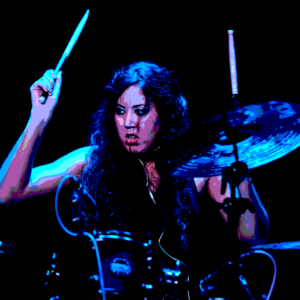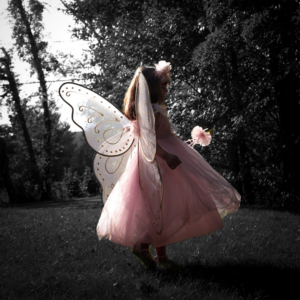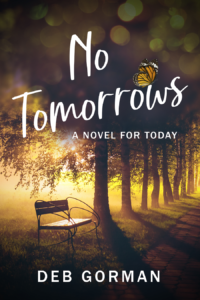Please help me welcome back a dear friend and talented storyteller, Steven Ramirez. The last time he guest posted on TKZ he discussed Pantsing Through the Pandemic. Today, he’s sharing his experience with— Well, I’ll let him tell you…

Recently, I took a break from writing fiction to focus on screenwriting. Currently, I’m adapting my latest novella, Brandon’s Last Words, as a feature screenplay.
If you’re wondering why anyone in their right mind would take on something like this, it’s simple—I live in LA. Trust me, you can’t swing a dead cat at Starbucks without hitting a screenwriter huddled at a corner table, determined to crank out the next Black Widow.
Okay, that’s partly it. The other reason is, I wanted to see if I could do it.
The novella is a prequel to a new thriller series. It takes place in the same universe as another of my series—only this time, with new characters. For those who have written a screenplay, you already know you need a log line. Here’s what I originally wrote for the novella:
Brandon Wheegar has just joined a secretive government-funded lab as a security guard. Why did no one warn him about the murderous test subjects?
That’s not bad. The question is, does it work for a movie? We’ll see. Of course, there’s plenty of other stuff to worry about. For this post, I’ll focus on three lessons learned.
The Beats, They Are Different

As fiction writers, we are keenly aware of story beats. They’re hammered into us starting in the womb. I’m tempted to joke that our friend James Scott Bell has beat that concept to death, but it would be low-hanging fruit, so.
The point is, screenplays need beats, too. But these are different and immutable. And without them, you effectively have something that is not a screenplay.
There are lots of resources out there that can teach you about screenplay structure. For simplicity’s sake, here are the high-level story beats, courtesy of Syd Field:
INCITING INCIDENT
This scene brings the main character into focus. Without this beat, there’s no story.
FIRST TURNING POINT
What happens here sends the MC off on a new path, similar to the Hero’s Journey.
MIDPOINT
This is where things get interesting. Maybe the MC makes an important decision that changes the course of the story. Or they realize that what they thought was the truth isn’t.
SECOND TURNING POINT
This scene moves the character from conflict to resolution. The MC has a plan and intends to execute on it.
RESOLUTION
Often, these events bring physical and emotional closure. In Hero’s Journey terms, the MC returns home and shares what they’ve learned.
Now, there are many other elements you should layer in to make a killer screenplay. If you want to see a more fully realized story beat list for some well-known movies, check out Save The Cat.
Limiting the Character Count

When writing a novel, I include lots of characters. I don’t know. Maybe I’ve got a little Russian blood in me. In my case, the names don’t all sound the same, though. Anyway, I take this approach because my main characters tend to travel far and wide.
Unfortunately, you don’t have that luxury when it comes to screenplays—unless you’re Quentin Tarantino.
Why?
Because a script is a blueprint that tells the producer how much money they must spend. And the more characters, the more the above-the-line costs skyrocket—things like actors’ salaries, hair, makeup, and snacks.
My novella has a fair number of supporting characters. And they serve the story well. But for the screenplay, I had to find a way to either cut or combine characters. Which brings to mind that most famous of advice, which admonishes the writer to kill your darlings. Most people attribute the quote to Faulkner. But, in fact, it was Sir Arthur Quiller-Couch, who wrote, “Murder your darlings.”
Now, he was talking about prose. In screenwriting, you pretty much have to take out the entire family. Here’s an example. In the novella, I have a chief security officer, a head of security, and two ruthless security specialists. Each has a part to play, and in Brandon’s Last Words, it’s all good. But for the script, I realized I had to combine the two security chiefs into one character and do the same with the two specialists. And it really doesn’t matter what kind of fiction you adapt. Chances are, you’ll slice and dice like a boss.
Getting the Genre Right

My novella can best be described as a horror/sci-fi thriller, with some comedy thrown in. I know, I know—welcome to my world. But, like any successful novel, you should tailor your screenplay to a target market.
When I sent off my first draft to a professional reader, I got back lots of notes. Some centered on the fact that my script didn’t read like horror. I had missed essential tropes, and many of the beats weren’t right.
Rereading the work, I realized I was clinging to my original mashup. Fine for novellas, not so much for screenplays that sell. I’m rewriting now, and let me tell you something. Scripts aren’t written—they’re rewritten. You thought it was a big deal writing three drafts of your novel? Try ten—or fifteen. Yeah. Also, in the real world, once the project is greenlit, they bring in other writers to “punch up the script.” Call it insurance.
Using the reader’s notes, I took a crack at turning my story into classic horror. But I ended up losing much of the humor. Now, if I were as cold-blooded as the chemically modified test subjects who terrorize my main character, I’d continue down this path. Most of you would because it’s the smart thing to do. And after all, you’d like to make some money, right? Me, I’m a rebel. I decided I prefer the story as a comedy thriller. Who knows, I might still have a shot (he said, nursing his tepid tea at Denny’s).
Look, there are quirky films out there that defy genre. I mean, did you ever see a little movie called Naked Lunch? It was directed by David Cronenberg and based on the William S. Burroughs novel. Yeah, so you know what I’m saying. Anyway, my advice is this: If you’re serious about selling your screenplay, then, by all means, write to market. Who knows? You might end up as a big-time Hollywood screenwriter. Me, I just want to create something surprising.
Final Thoughts
We writers are well acquainted with copyrighting our work. Technically, your novel is protected the moment you put pen to paper. Unfortunately, when it comes to screenplays, there’s more to it than that. In this town, a good movie idea gets stolen faster than you can say Coming to America. The point is, register your script with the Writers Guild of America. It’s no guarantee some no-account won’t try to take your precious, but at least you have legal recourse. For more information, visit the WGA West website.
The other thing to consider is screenwriting software. There’s plenty out there, including traditional writing apps like Scrivener, which support the screenplay format. If you’re planning to make this a career, though, I suggest you purchase Final Draft. It’s arguably the industry standard. Also, when collaborating with other screenwriters, there’s an excellent chance that’s the software they use. For more information, visit the Final Draft website.
Well, that’s me done. Happy screenwriting. Oh, and wish me luck with the next Naked Lunch.

Steven Ramirez is the award-winning author of thriller, supernatural, and horror fiction. A former screenwriter, he’s written about zombie plagues and places infested with ghosts and demons. His latest novel is Faithless, a thriller. Steven lives in Los Angeles.
Join Steven’s newsletter here or connect with him on Twitter.
For discussion: Have you ever considered turning your novel/novella into a screenplay? What actor would you want to play your hero or antagonist?














